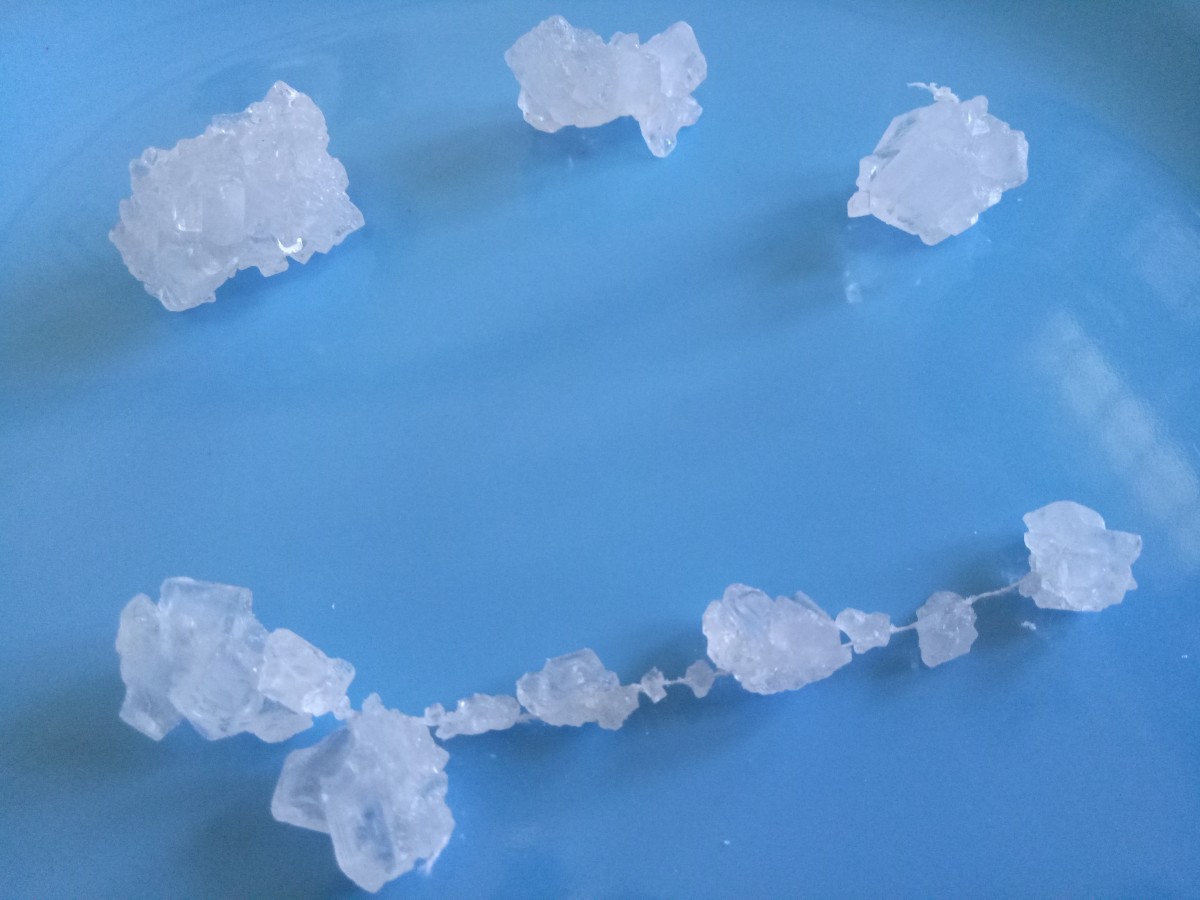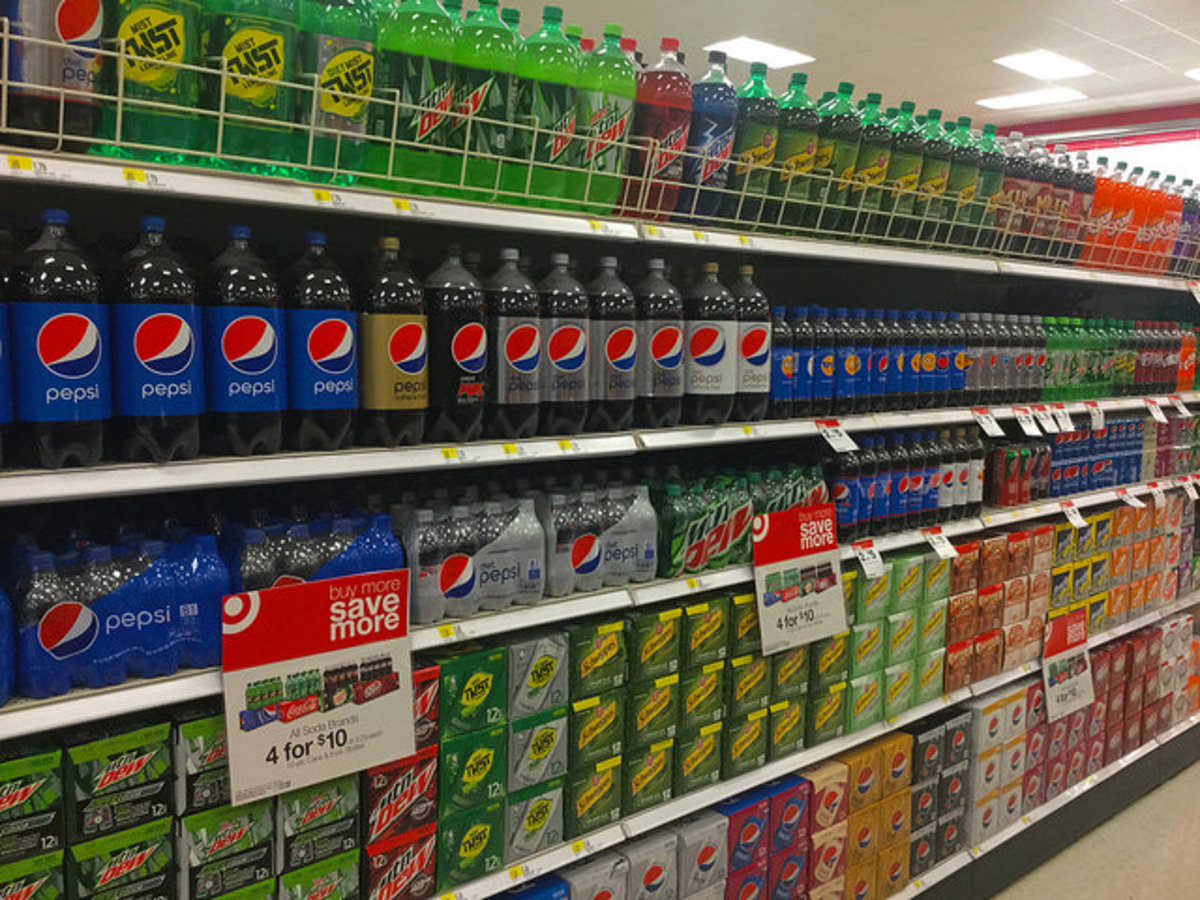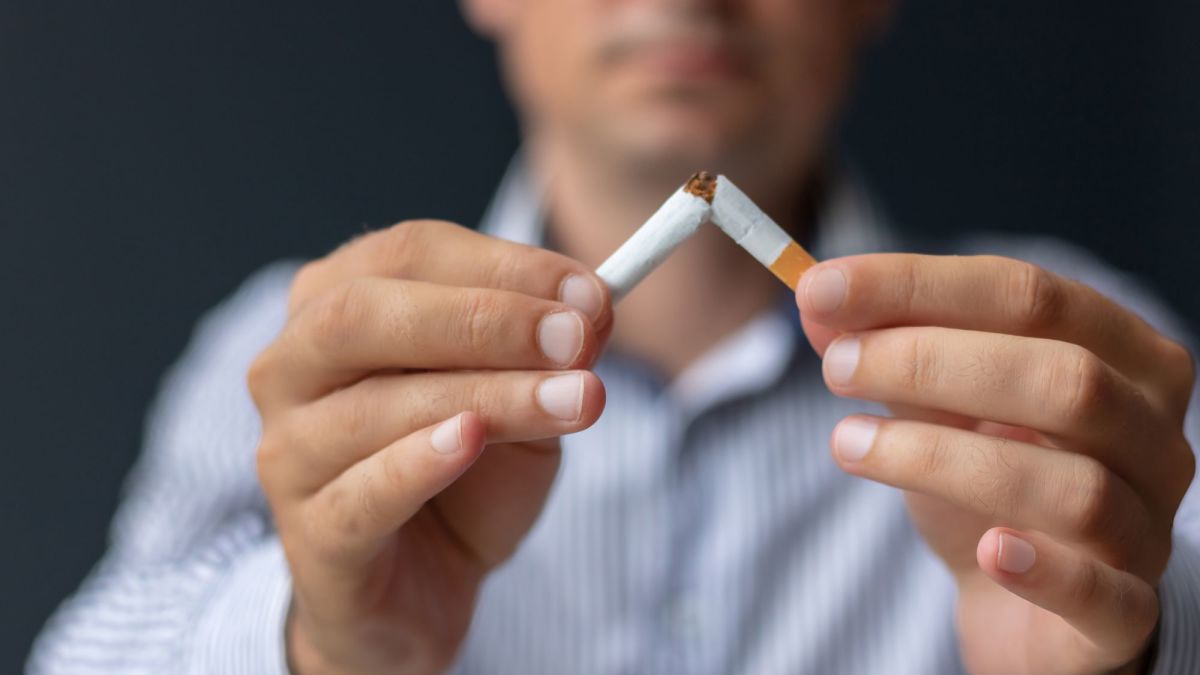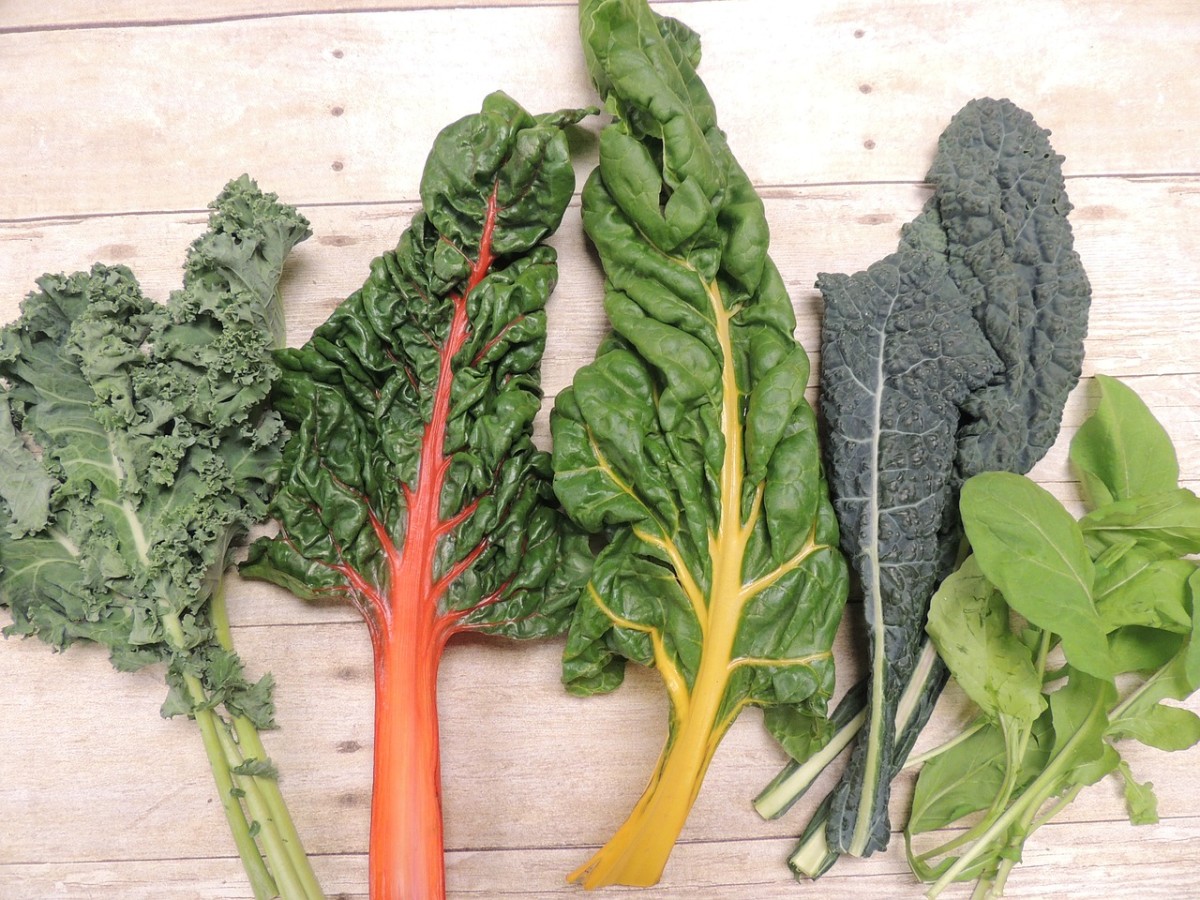Why Is Sugar So Bad?
What Is Sugar and Why Is it Bad for Us?
Sugar itself is a carbohydrate that’s a natural part of our metabolism. It’s what our bodies use to produce energy. The problem is that what started out as flavor enhancement has now become a leading ingredient in so many foods. Worse yet, Dr. Lustig from UCSF points out how sugar is “as addictive as cocaine.”
Sugar: The Bitter Truth - Dr Lustig of UCSF
Did you know that Americans actually consume over 150 pounds of sugar per year?
That’s literally a whole person's weight in sugar we're consuming!
What Is Refined Sugar and Why Is it Bad?
For the most part what we call “sugar” is actually refined sugar, which is the powdered white sugar from the syrup extract of sugarcane or sugar beets. It is also known as sucrose, which is a combination of fructose and glucose.
Refined sugars come in a variety of processed forms such as granulated white sugar, brown sugar, dextrose, high fructose corn syrup and malt syrup. Meanwhile, fructose are the natural sugars found in fruit, and lactose in dairy products like milk and cheese.
Processed foods with these refined sugars lack nutrients but have plenty of what we call “empty calories,” while promoting tooth decay and other problems we’ll discuss in a moment. Fruits and milk products on the other hand have vitamins and nutrients, while making us feel full with fiber, or protein in the case of dairy.
Basics of Metabolism
How Does Sugar Affect Metabolism
Normally, the body burns carbohydrates as a part of the process of producing energy.
With fruits and dairy we have a balance of chemical reactions and hormones within our bodies that supports living and growing healthy tissue. But when we throw in refined sugars this starts getting out of whack. Insulin and blood sugar levels spike signalling our body to store fat, yet we still feel hungry and tend to want to eat more.
The result is that we overwork our liver causing a condition that affects 90 million Americans and leads to pre-diabetes obesity, ultimately resulting in Type 2 diabetes. While the “recommended daily consumption” is 30 g, we actually consume about 95 g per day! Part of the problem is 80% of what we eat (especially processed foods) now have added sugars.
To Add Insult to Injury
Obesity has been linked with certain cancers such as breast, prostate, uterine, colorectal and pancreatic.
And while we believed for years that saturated fats led to heart disease - still the #1 killer - it turns out that high consumption of fructose can raise LDL (also known as the bad cholesterol) and triglycerides.
There is also evidence of the harmful effects of candida, which consuming refined sugar exasperates.
Candida and Sugar Cravings
Over recent years there has been more awareness about the importance of gut health. Within our stomachs there is a constant battle between healthy bacteria and a yeast called candida. When these are out of balance, many problems can result even beyond your digestive and immune systems.
Sugar feeds candida, and candida overgrowth can result in sugar cravings. Without the healthy bacteria keeping this yeast in check, we're more likely to get stomach illnesses. Often these are treated with antibiotics which is more likely to only more the situation worse by killing off more of our healthy bacteria. And thus this creates a dangerous vicious cycle.
Sugar Rush - Jamie Oliver
If Sugar Is Bad, Why Do We Crave It?
The basic problem is that our cravings are a signal of what our bodies want. However, this signal has been short circuited by these toxic mimics of what we really need.
'We are programmed to enjoy eating fatty and sugary substances, and our brains tell us to seek them out,” says psychologist Dr Leigh Gibson, Reader in Biopsychology at Roehampton University.
"First, there is dopamine, a brain chemical that is involved in learning and concentration. When we see or experience something new, dopamine is released in the brain.
"This works in tandem with other brain chemicals called opioids, which give us feelings of enjoyment and pleasure. The combination of these two factors mean that the brain associates certain activities with pleasure, and it teaches us to do them again and again.”
This creates in essence a habit loop - something MIT researchers discovered while experimenting with rats running mazes. They found that the cerebral cortex of the rats' brains were highly active in during initial maze runs but after repeated runs required less and less.
In other words, once we find something pleasurable our brains devote less and less time to thinking about it. We literally go into autopilot with our choices whether it’s junk food or drugs.
The Habit Loop
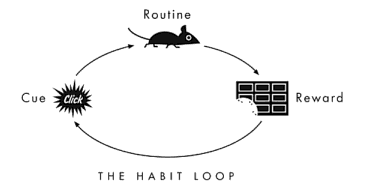
Natural Sugars from Fruits
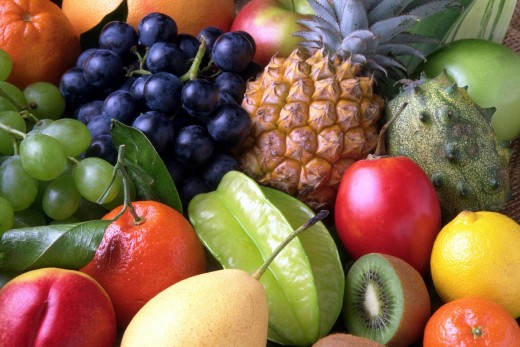
So What Can We Do?
Of course, it turns out that it goes back to basic nutrition principles.Eating fruit provides the nutrients our bodies need and antioxidants to fight cancer. Meanwhile, the fiber curbs our appetite and helps to prevent overeating and gaining weight.
Read food labels, and be aware of how much added sugar there is in your foods. In Sugar Rush celebrity chef Jamie Oliver was surprised and couldn’t believe how much sugar was in a bottle of sauce he used for an otherwise healthy meal of stir-fry vegetables. Educating ourselves is critical because the current FDA requirements still do not require any warnings about the dangers of consuming sugar.
Consider some natural sugar substitutes. We'll talk more about which sugar substitutes are healthy and which are not. One alternative you may consider is a plant based natural supplement called stevia. Here's more on stevia vs sugar
Stevia vs Sugar
Stevia
| Sugar
| |
|---|---|---|
Fat
| 0
| 0
|
Carbohydrates (g)
| 0
| 18
|
Sugars (grams)
| 0
| 18
|
Calories
| 0
| 60
|
Summary of Why Is Sugar So Bad
- Refined sugars is found in almost every food item these days
- These feed into our body's urges and creates cravings
- Unless we educate ourselves and are aware, this leading cause of obesity only gets worse
- While it's not too late, this is not easy and requires constant awareness and action
- Healthier alternatives include fruits and other whole foods, plus some natural sugar substitutes
This content is accurate and true to the best of the author’s knowledge and does not substitute for diagnosis, prognosis, treatment, prescription, and/or dietary advice from a licensed health professional. Drugs, supplements, and natural remedies may have dangerous side effects. If pregnant or nursing, consult with a qualified provider on an individual basis. Seek immediate help if you are experiencing a medical emergency.

